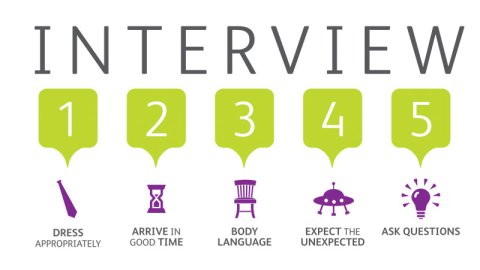Undergraduate interview invitations
Interviews and auditions help course tutors compare applicants before deciding what offers to make. Here are some useful tips to help you prepare for your interview.
How it works
It could be an interview or audition, or you might be asked to provide examples of your work – maybe a portfolio or an essay.
Finding out more about you is an ideal way for them to see if you'd be a good fit for the course.
- If they do send you an invitation, it could either be sent to you directly, or through your UCAS application. It’s best to contact the uni or college to find out how and where you will receive information about your interview.
- Universities and colleges say it can be difficult to change the times and dates of interviews, so if possible, try to go at the suggested time.
- If you can’t attend at the allotted time, you need to let the university or college know as soon as possible. If you received your interview decision through UCAS, the option to request a different time will be available. If you received the interview decision in another way, get in touch with the uni/college. When you've agreed a new date, they'll either update the invitation in your application or contact you directly to let you know.
Then after you've attended, they'll tell us when they've made a decision and we'll let you know. Once all decisions are in, you can reply to your offers.
Interview tips
Interviews aren't everyone's favourite thing, but with a bit of preparation you can do well.
They'll be looking for enthusiastic students with lots to offer – someone who can work independently and consider new ideas, someone who will thrive, enjoying a varied academic life alongside outside interests.
1. Plan ahead
- Check when and how – so you can plan ahead and make sure you’re able to attend, it’s a good idea to check when and how the interview will be ran. If it’s in person, check things like travel and accommodation, and if it’s online make sure you have access to a laptop and a quiet place.
- Be ready for questions – some about your application, as well as your chance to ask about the course and the uni/college.
- Know your stuff – show you know the latest in your subject area, and keep up to date with the news – they might ask to hear your views.
- Practice – have mock interviews with a teacher or adviser – cover why you chose that course and what you enjoy most about your current studies.
- Sleep well!

2. The interview
- Dress smartly but be comfortable – you might not need a suit, but smart trousers/skirt and a shirt/blouse will show you're taking it seriously.
- Give yourself plenty of time to attend – have their contact details handy so you can let them know just in case you're delayed.
- Watch your body language – don't slouch, yawn or fold your arms – stay calm and alert, sit up straight and make eye contact.
- Don't worry if you don't understand – ask them to repeat or rephrase the question, make a good guess, or relate it to something you know better.
- Expect the unexpected – they might do a surprise test to see how you react under pressure – just do your best.
- Ask them questions too – this shows enthusiasm and gives you chance to get answers you haven't found yet.
3. Afterwards
- Make notes – if you have more interviews coming up, it might be handy preparation to write down the questions and answers you've already had.
- Reflect on how you did – decide what worked well and think of new answers for areas you want to improve in.
- Then sit back and wait – once we've heard from the university or college, we'll let you know if they're making you an offer.